
A large high pressure system will usher in cold air for this first day of March across the northern Plains, Great Lakes, Northeast and mid-Atlantic. Some wintry precipitation may evolve across the mid-Mississippi Valley, Ohio Valley and mid-Atlantic through Monday. Meanwhile, record warmth will spread across the Southwest, southern Plains through early this week. Read More >
U.S. Drought Monitor | Click here for a listing of ways to obtain past precipitation
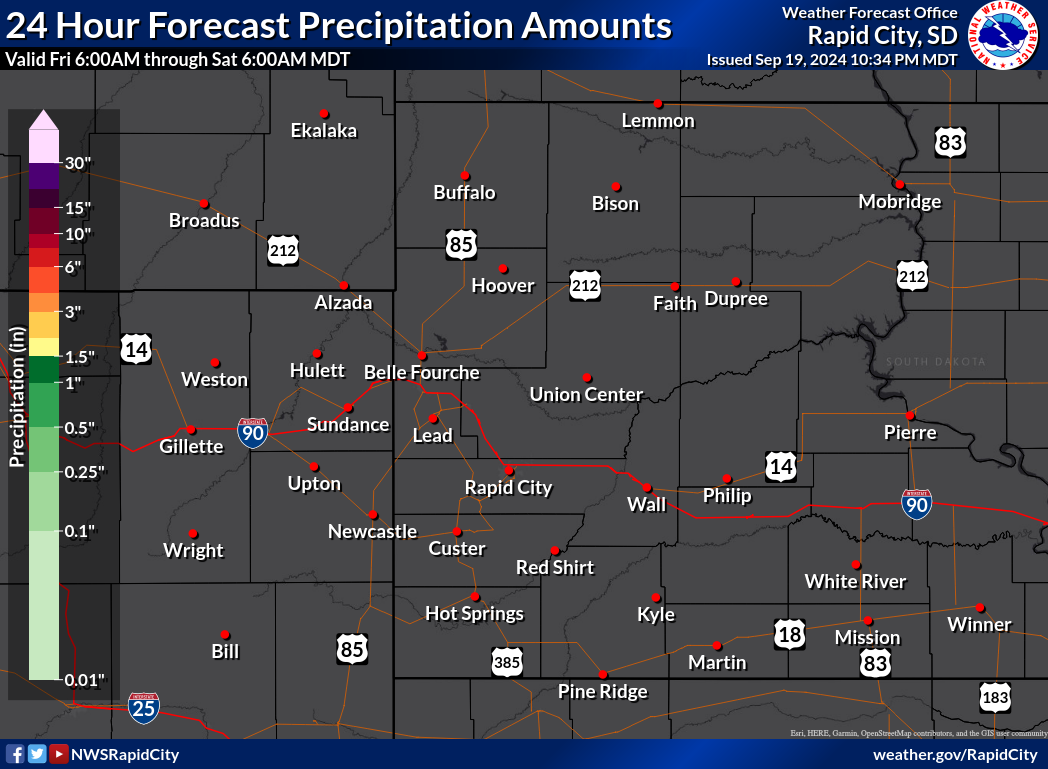 1 Day Precipitation Forecast |
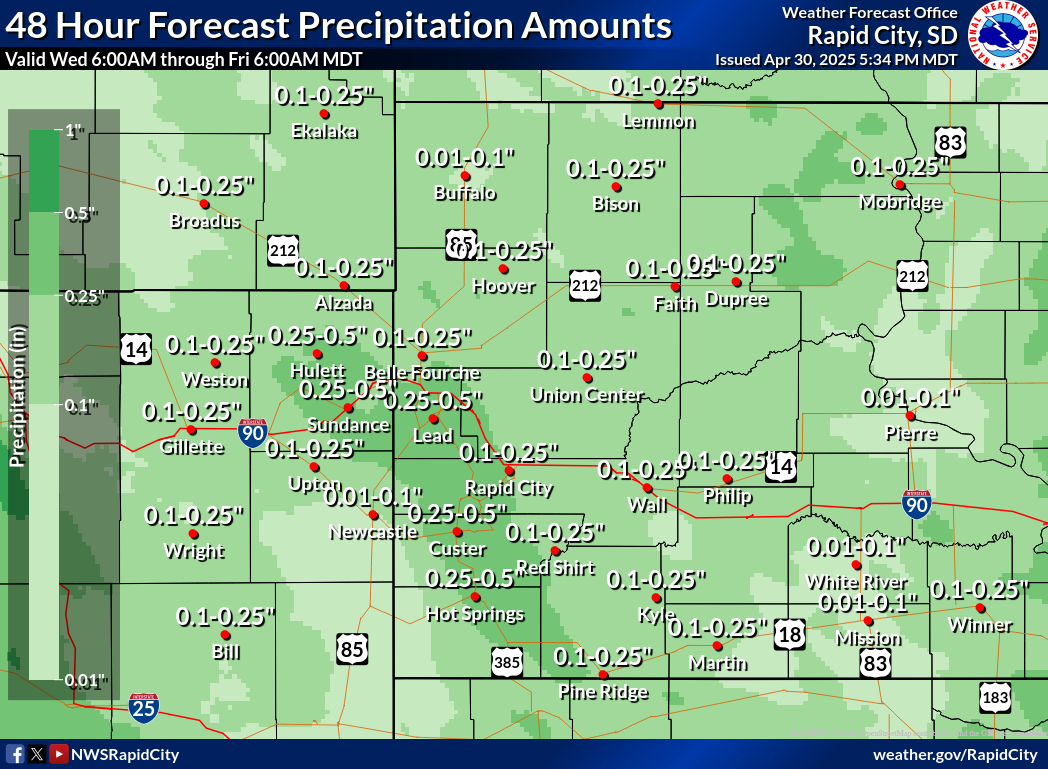 2 Day Precipitation Forecast |
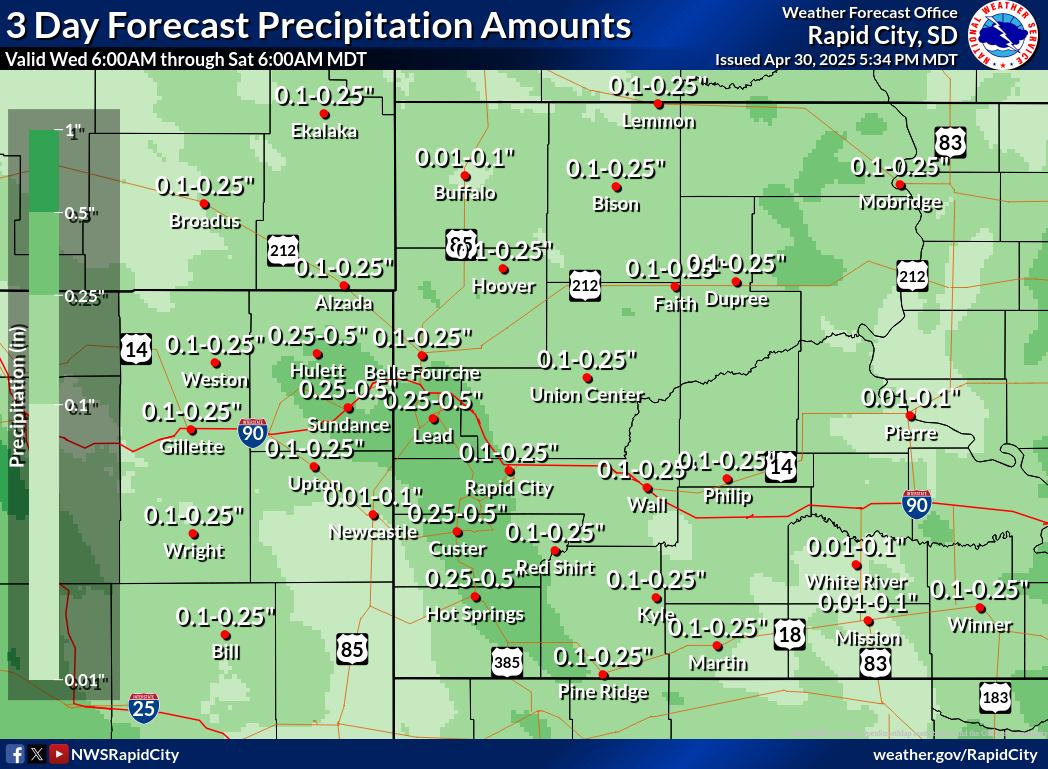 3 Day Precipitation Forecast |
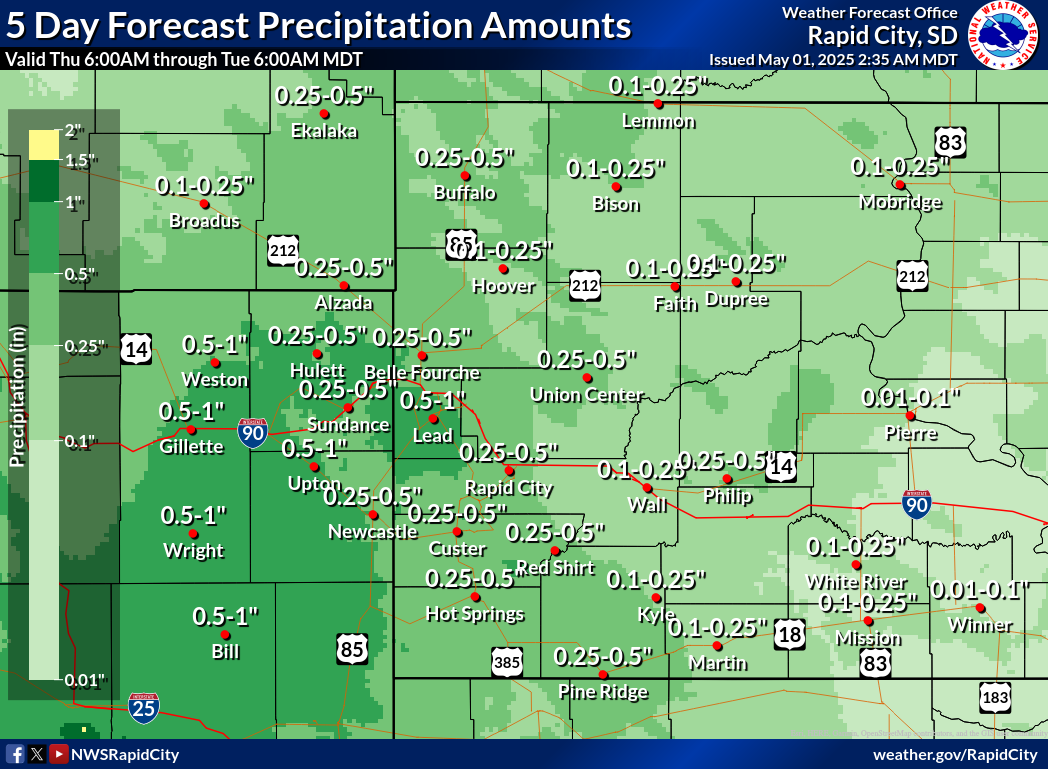 5 Day Precipitation Forecast |
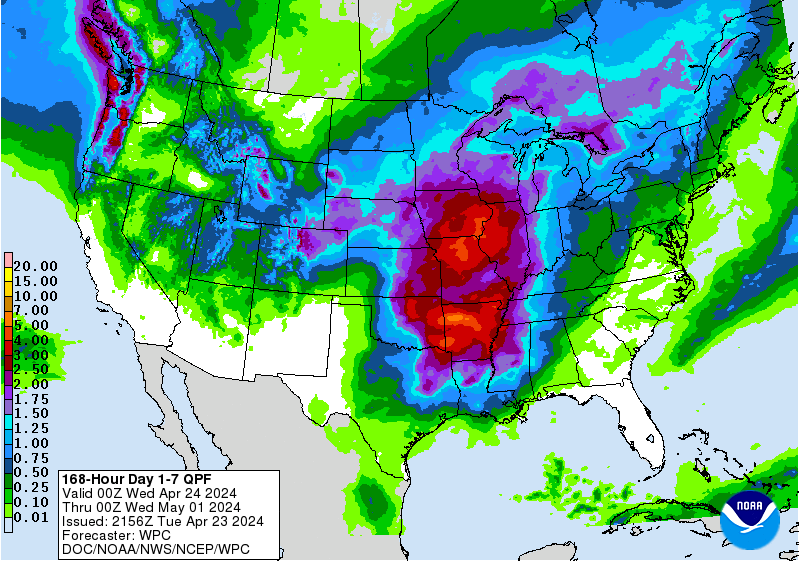 7 Day Precipitation Forecast |
|
 6-10 Day Precipitation Outlook |
 8-14 Day Precipitation Outlook |
 One Month Precipitation Outlook |
 Three Month Precipitation Outlook |
The drought monitor is a multi-agency effort involving NOAA’s National Weather Service (NWS) and the National Centers for Environmental Information (NCEI), United States Department of Agriculture (USDA), State and Regional Climate Centers, and the National Drought Mitigation Center at the University of Nebraska-Lincoln. Information for this statement has been gathered from a number of different federal, state, and local agencies including the NWS and Federal Aviation Administration (FAA) Observing Sites, State Cooperative Extension Services, United States Department of Agriculture, Bureau of Reclamation (USBR), the United States Geological Survey (USGS), and many more.
If you have any questions or comments about this drought information please contact:
Aaron Woodward
Warning Coordination Meteorologist
aaron.woodward@noaa.gov
National Weather Service
300 East Signal Drive
Rapid City South Dakota 57701
605-341-9271 ext. 493